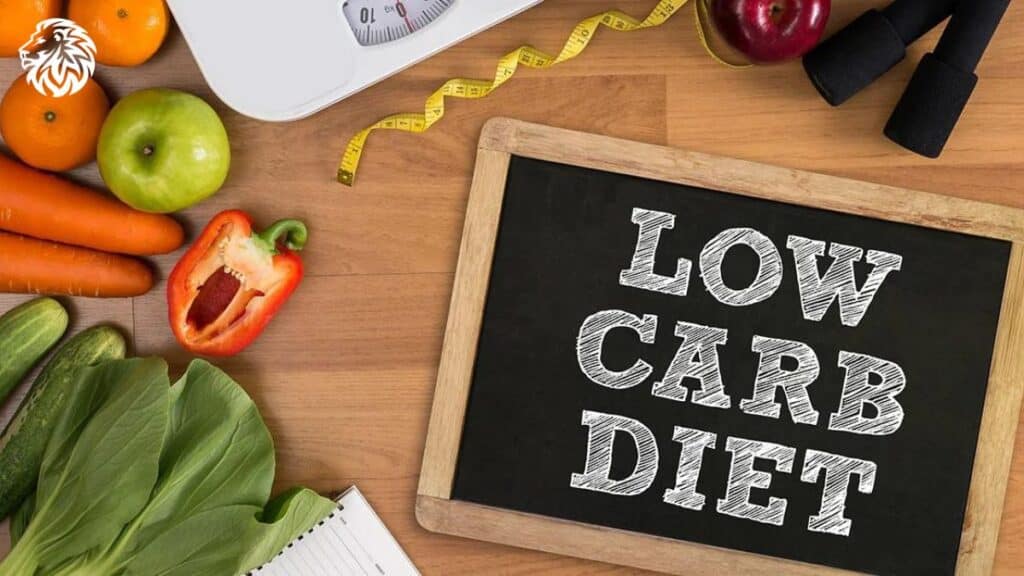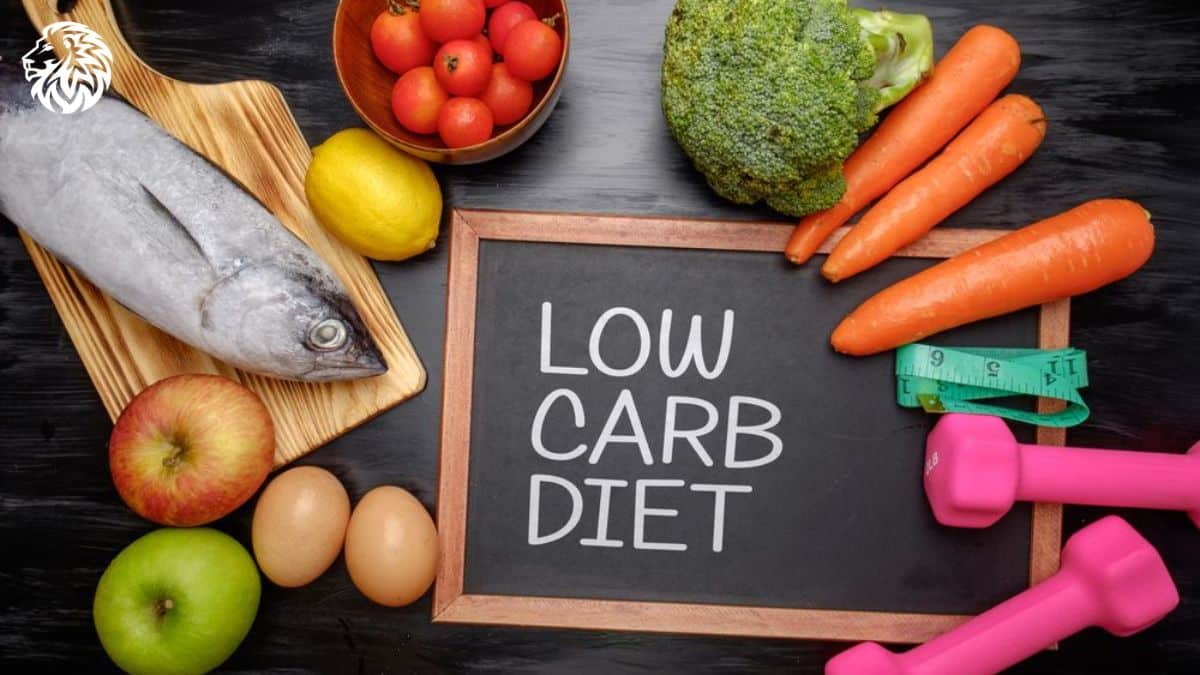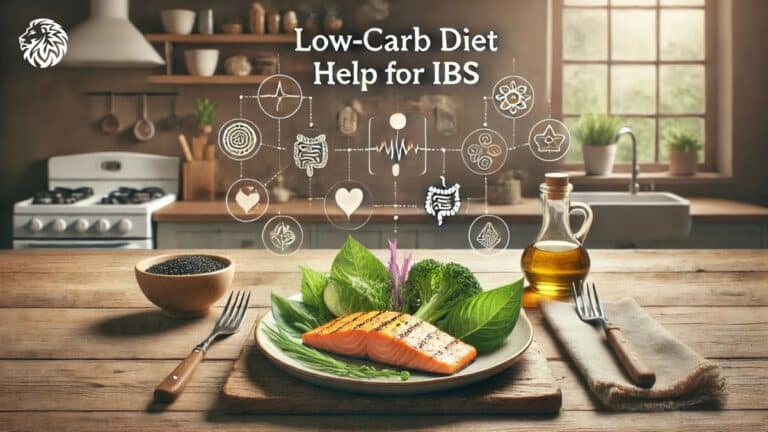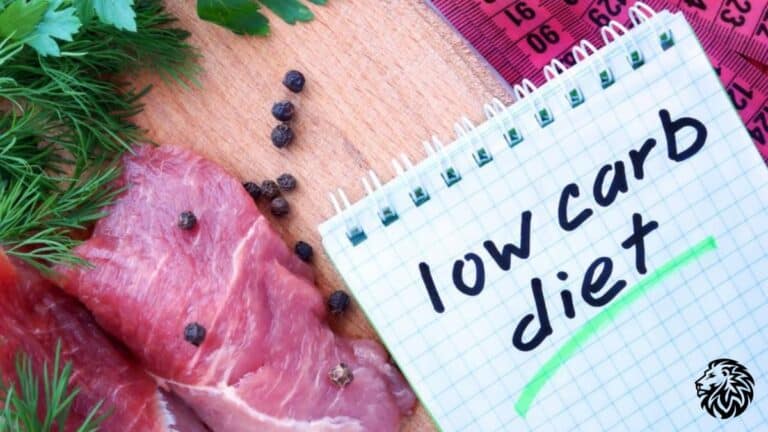In the realm of weight loss, low-carb diets have soared in popularity, boasting rapid results and significant transformations. At their core, these diets aim to limit the intake of carbohydrates, pivoting the body’s primary energy source from glucose to stored fat. The result? Potential weight loss, among other health benefits.
However, with the myriad of success stories and before-and-after photos flashing across social media, a common question arises: “How long does it actually take to lose 30 pounds on such a diet?” This article delves into this query, offering insights, factors affecting the weight loss timeline, and what one might realistically expect when embarking on a low-carb journey to shed those pounds.
How Long Does It Take to Lose 30 Pounds on a Low-Carb Diet?

The time it takes to lose 30 pounds on a low-carb diet, or any diet, depends on numerous factors including:
- Starting weight: Someone who has more weight to lose might initially lose weight more quickly than someone who is closer to their target weight.
- Caloric intake and deficit: Weight loss largely comes down to burning more calories than you consume. Even if you’re cutting carbs, if you’re still consuming more calories than you burn, you won’t lose weight.
- Activity level: Combining a low-carb diet with regular physical activity can accelerate weight loss.
- Metabolism: Some people naturally burn calories more efficiently than others.
- Adherence: How strictly you follow the low-carb plan can greatly influence results.
- Individual variations: Hormones, age, gender, and other physiological factors can affect weight loss.
That said, many people find that they lose weight relatively quickly when starting a low-carb diet due to the initial loss of water weight. It’s not uncommon for individuals to lose 5-10 pounds in the first week or two on a strict low-carb or ketogenic diet, but much of this is water weight. After this initial period, weight loss tends to become more gradual.
If we consider a safe and sustainable weight loss rate of 1-2 pounds per week, losing 30 pounds would take anywhere from 15 to 30 weeks (or about 3.5 to 7 months). However, it’s worth noting that weight loss may not be linear; there might be periods of faster weight loss and other periods of plateau.
It’s crucial to approach weight loss with a focus on overall health and sustainability. Rapid weight loss can be unhealthy and difficult to maintain in the long run. Always consult with a healthcare provider or nutritionist before starting any weight loss plan to ensure it’s safe and appropriate for you.
Understanding Weight Loss Fundamentals

Weight loss, at its most basic level, is a game of numbers – specifically, the numbers related to calorie intake and expenditure. Let’s break this down further:
- Basic Principle of Calorie Intake vs. Calorie Expenditure:
- Every action, from breathing to running, requires energy, and this energy is measured in terms of calories. Our bodies burn a certain number of calories just to maintain basic life functions; this is known as the Basal Metabolic Rate (BMR).
- On top of the BMR, physical activities like walking, exercising, and even digestion require additional energy. The sum total of calories expended in all these processes is the total daily energy expenditure (TDEE).
- Simultaneously, we consume calories through the food and drinks we intake. The balance between the calories consumed and expended determines weight gain, loss, or maintenance.
- Importance of a Calorie Deficit for Weight Loss:
- A calorie deficit occurs when the body expends more calories than it takes in. In simpler terms, it means burning more calories than you eat.
- When in a calorie deficit, the body needs to source energy from somewhere, and it turns to its stored reserves, primarily fat, to meet its needs.
- Generally, a calorie deficit of 500 calories a day can lead to approximately one pound of weight loss per week, given that 3,500 calories roughly equate to a pound of fat. However, this rate can vary based on several factors, including an individual’s metabolism, activity level, and more.
- How Low-Carb Diets Can Lead to a Calorie Deficit:
- Low-carb diets, by design, restrict the consumption of high-calorie, carbohydrate-rich foods.
- When carbohydrate intake is lowered significantly, the body enters a state called ketosis, wherein it begins to burn fat for energy in the absence of ample glucose.
- This metabolic shift often results in reduced appetite and increased satiety, making it easier for individuals to consume fewer calories without feeling deprived or overly hungry.
- Furthermore, low-carb diets often emphasize protein and fat consumption, both of which can help in maintaining muscle mass and keeping hunger at bay for longer periods.
In essence, while the principle of weight loss remains rooted in the calorie equation, low-carb diets offer a structured approach that can simplify achieving a calorie deficit for many. However, individual experiences can vary, and it’s essential to remember that what works best is often tailored to personal needs and circumstances.
What is a Low-Carb Diet?

The dietary landscape has been dotted with various approaches to weight loss and wellness, and among them, the low-carb diet has distinguished itself as both controversial and transformative. Let’s journey through its origins, its principles, and some of its popular variants.
- Brief History and Evolution:
- The origins of the low-carb diet can be traced back to the mid-19th century with the Banting diet, named after William Banting, a British undertaker who touted the benefits of a reduced carbohydrate intake.
- In the 20th century, particularly in the 1970s, Dr. Robert Atkins popularized a version of the low-carb diet with the introduction of the Atkins Diet. This marked a significant departure from the then-prevailing low-fat dietary recommendations.
- Over the years, as scientific research advanced, the benefits and potential risks of low-carb diets were debated, refined, and better understood. By the 21st century, various versions of the low-carb diet had emerged, each tweaking the basic premise to achieve different health and weight loss goals.
- Typical Macronutrient Distribution: Fats, Proteins, Carbs:
- While specifics can vary depending on the exact type of low-carb diet, a general guideline often involves:
- Carbohydrates: Typically limited to about 20-50 grams per day for those on stricter regimens, or up to 20-30% of total caloric intake for more moderate approaches.
- Proteins: Protein intake is often moderate, comprising around 20-30% of total calories, though this can be higher in certain low-carb, high-protein diets.
- Fats: With carbs being restricted, fats often become the predominant macronutrient, making up anywhere from 50-70% (or more) of total calories.
- While specifics can vary depending on the exact type of low-carb diet, a general guideline often involves:
- Popular Examples:
- Keto (Ketogenic) Diet: This diet emphasizes a very high fat intake (around 70% or more of total calories) with very low carb consumption, often less than 20 grams per day. The primary goal is to push the body into a state of ketosis, where it burns fat as its primary energy source.
- Atkins Diet: Introduced in stages, the Atkins Diet starts with a very low-carb phase, similar to keto, but gradually increases carb intake over time while monitoring weight loss and metabolic response.
- South Beach Diet: While it starts with a restrictive phase limiting grains, fruits, and other higher-carb foods, it gradually reintroduces them in moderation. It’s less strict than keto or the early stages of Atkins and places emphasis on choosing healthier carbs and fats.
While the umbrella term “low-carb diet” encapsulates a broad range of dietary practices, the common thread is a reduced emphasis on carbohydrates. Choosing the right variant depends on individual goals, health considerations, and personal preferences.
Factors Affecting Weight Loss on a Low-Carb Diet

Embarking on a low-carb diet might feel like stepping into a world of predictable weight loss, but the reality is multifaceted. Various factors influence how swiftly one sheds pounds, even on a low-carb regimen.
- Initial Water Weight Loss:
- Explanation of Glycogen and Its Association with Water: Glycogen is the stored form of glucose (sugar) in our bodies, primarily found in the liver and muscles. For every gram of glycogen stored, the body retains approximately 3-4 grams of water.
- Typical Initial Weight Loss During the First Week: When one adopts a low-carb diet, the body quickly uses up stored glycogen for energy, resulting in the release of the associated water. This process often leads to a rapid loss of weight in the form of water during the initial week, which can range from 2 to 10 pounds or more, depending on the individual.
- Individual Metabolic Rate:
- Every individual has a unique rate at which they burn calories, even at rest. This rate is termed the Basal Metabolic Rate (BMR).
- Factors Like Age, Gender, Activity Level, and Muscle Mass:
- Age: Metabolism tends to slow down with age.
- Gender: Men typically have a higher BMR than women due to a greater muscle mass.
- Activity Level: Active individuals burn more calories both during activity and at rest.
- Muscle Mass: Muscle tissue consumes more calories than fat, even at rest.
- Adherence to the Diet:
- Importance of Staying Consistent: Weight loss success is often directly proportional to consistency. Regularly sticking to the low-carb guidelines will yield better results over time.
- Common Pitfalls and Temptations: Social events, lack of low-carb options in restaurants, or cravings can tempt individuals off the low-carb path. Recognizing and preparing for these challenges can help maintain consistency.
- Exercise and Activity Level:
- Role of Exercise in Boosting Weight Loss: Physical activity accelerates calorie burn, promoting a faster calorie deficit. When combined with a low-carb diet, exercise can enhance weight loss and muscle preservation.
- Recommendations for Types of Exercises: A combination of aerobic exercises (like walking, running, or cycling), strength training (to maintain and build muscle), and flexibility exercises (like yoga) can offer comprehensive benefits.
- Hormonal and Genetic Factors:
- While the low-carb approach can be effective for many, our genetic makeup and hormonal balance play undeniable roles in weight loss.
- Conditions like polycystic ovary syndrome (PCOS), hypothyroidism, or insulin resistance can affect weight loss rates.
- Some individuals may naturally lose weight faster or slower due to their genetic predispositions.
In sum, while a low-carb diet provides a structured approach to weight loss, individual results will vary based on a myriad of personal factors. Understanding and adjusting to these factors can help enhance the effectiveness of the diet and set realistic expectations.
Realistic Time Frames for Losing 30 Pounds on a Low-Carb Diet

Losing 30 pounds is a significant milestone, and while low-carb diets can be an effective avenue to achieve this, the time it takes varies greatly based on several factors. Here’s a breakdown of potential timeframes:
- Best-case Scenario (Perfect Adherence, High Activity Level, etc.):
- With perfect adherence to the diet and a high activity level, individuals might see a rapid initial weight loss, especially from water weight, which could be around 5-10 pounds in the first week.
- Factoring in the initial rapid weight loss and assuming an optimistic (but still safe) rate of 2-3 pounds lost per week thereafter, it might take between 8 to 12 weeks to lose 30 pounds in the best-case scenario.
- Average-case Scenario (Some Occasional Slips, Moderate Activity, etc.):
- In this scenario, the initial water weight loss might be around 4-6 pounds in the first week.
- Given occasional dietary slips and a moderate activity level, the weight loss rate might average out to 1-2 pounds per week post the initial phase. This would mean a timeframe of around 15 to 26 weeks to achieve a 30-pound weight loss.
- Slower Progress Scenario (Low Activity, Frequent Deviations from Diet, etc.):
- Individuals might lose around 2-4 pounds of water weight in the first week due to less strict carb restriction.
- With a more relaxed adherence to the diet and low activity, weight loss might proceed at a pace of 0.5-1 pound per week subsequently. This puts the timeframe for losing 30 pounds at approximately 26 to 52 weeks.
- Note on Plateaus and How to Navigate Them:
- Almost everyone experiences plateaus during their weight loss journey, where weight remains stagnant for weeks despite efforts.
- Plateaus can be caused by a variety of factors, including water retention, hormonal fluctuations, or even the body adapting to its new weight.
- Navigating plateaus involves:
- Re-evaluating calorie intake: As one loses weight, caloric needs decrease. It might be necessary to adjust food intake accordingly.
- Varying exercise routines: Changing up workouts can challenge the body and reignite weight loss.
- Ensuring adequate sleep and stress management: Both sleep and stress play a role in weight loss and plateaus.
- Staying patient and persistent: Sometimes, the best approach is to remain consistent, trust the process, and give the body time to adjust.
Setting a timeframe for weight loss should be done with an understanding of one’s personal circumstances and the unpredictabilities of the body. It’s always advisable to aim for sustainable, healthy weight loss rather than rushing the process.
Health Considerations & Recommendations on a Low-Carb Diet

Embarking on a weight loss journey, especially through a significant dietary shift like a low-carb diet, warrants thoughtful considerations about one’s health. Here’s a comprehensive overview of what you should keep in mind:
- Importance of Losing Weight at a Safe and Sustainable Pace:
- Rapid weight loss can lead to muscle loss, nutritional deficiencies, and can strain the heart and other vital organs.
- It’s generally recommended to aim for a weight loss of 1-2 pounds per week, which allows the body to adjust gradually and maintains lean muscle mass.
- Possible Side Effects of a Low-Carb Diet:
- “Keto Flu”: As the body transitions from burning glucose to fat for energy, some individuals might experience flu-like symptoms — fatigue, headaches, irritability, difficulty focusing (“brain fog”), lack of motivation, dizziness, and nausea. While these symptoms typically subside within a week, it’s essential to stay hydrated and consider increasing salt intake slightly during this period.
- Nutrient Deficiencies: Restricting certain food groups can lead to deficiencies in essential vitamins and minerals. For example, a lack of fruits and certain vegetables might lead to reduced fiber and antioxidant intake. It’s crucial to diversify food choices within the low-carb framework and consider supplementation if necessary.
- Constipation: Reduced fiber intake, common in many low-carb diets, can lead to constipation. Ensure adequate water intake and consider foods or supplements that can help increase fiber.
- Seeking Medical Advice and Regular Check-ups:
- Before starting a low-carb diet, especially if you have existing health conditions, it’s crucial to consult with a healthcare professional.
- Regular medical check-ups can help monitor cholesterol levels, kidney and liver function, and other essential health markers.
- It’s particularly crucial for individuals with diabetes to consult with a healthcare provider, as medication adjustments might be needed.
- Listening to Your Body: Signs That the Diet May Not Be Right for You:
- Persistent Fatigue: While some fatigue is expected during the initial transition, if it continues or becomes debilitating, it might be a sign to re-evaluate the diet.
- Mood Changes: Drastic dietary shifts can impact mood. If feelings of depression or irritability persist, consider seeking guidance.
- Significant Sleep Disturbances: Some people report insomnia or disrupted sleep on a low-carb diet. If this doesn’t improve, it might be worth reconsidering the diet or adjusting carb intake levels.
- Digestive Issues: Beyond initial adjustments, prolonged digestive problems like severe constipation or diarrhea warrant attention.
- Rapid or Irregular Heartbeat: This can be a sign of electrolyte imbalances and should be addressed immediately.
Remember, while low-carb diets can offer benefits and facilitate weight loss for many, they are not a one-size-fits-all solution. Health should always be the priority, so regularly reassessing and making necessary adjustments is crucial. Above all, trust your body’s signals and prioritize overall well-being.
Conclusion
Embarking on a weight loss journey is a commendable step, requiring dedication, knowledge, and a fair amount of self-reflection. As we journeyed through the nuances of a low-carb diet, several key insights emerged:
- Weight Loss Fundamentals: At its core, weight loss hinges on the balance between calorie intake and expenditure. Low-carb diets often aid in creating a calorie deficit by altering hunger hormones and enhancing satiety.
- Understanding Low-Carb Diets: This approach, with its rich history and varied incarnations like Keto, Atkins, and South Beach, primarily emphasizes reducing carbohydrate intake, shifting the body’s primary energy source.
- Factors Affecting Weight Loss: Individual factors such as metabolic rate, adherence to the diet, exercise routines, and even genetic and hormonal differences play a massive role in determining how quickly one loses weight.
- Realistic Time Frames: Setting realistic expectations is crucial. Whether you’re on a fast track with perfect adherence or moving at a slower pace, understanding the journey’s nature is essential.
- Health Considerations: Prioritizing health by understanding potential side effects, seeking regular medical check-ups, and listening to your body’s signals ensures that the weight loss journey is both effective and safe.
As you stand at the cusp or perhaps even mid-way through your weight loss journey, take heart in the knowledge that every step, even the small stumbles, is part of the process. Celebrate each milestone, and remember that it’s not just about reaching that magic number on the scale. True success lies in embracing a holistic approach: it’s not solely about the diet but the amalgamation of lifestyle changes, both in the realm of food and beyond.
Your journey is unique, and while guidelines and recommendations pave the path, your personal experience, determination, and resilience are the true drivers of transformation. Here’s to your health, happiness, and every step towards your goal!







